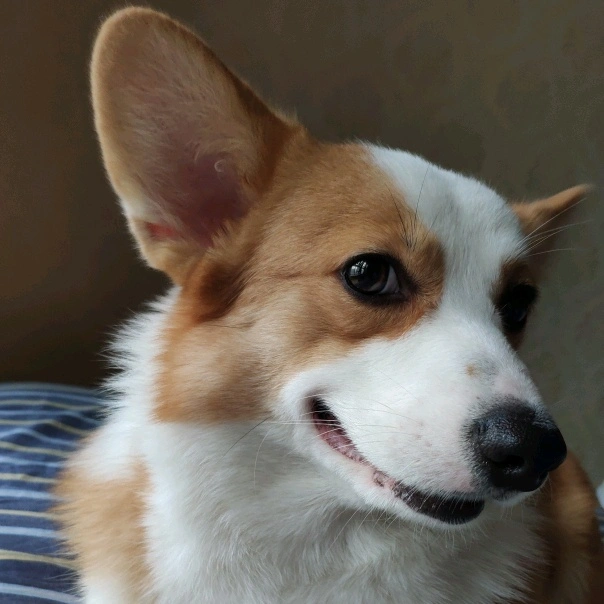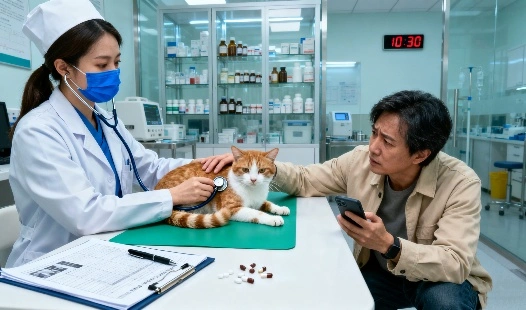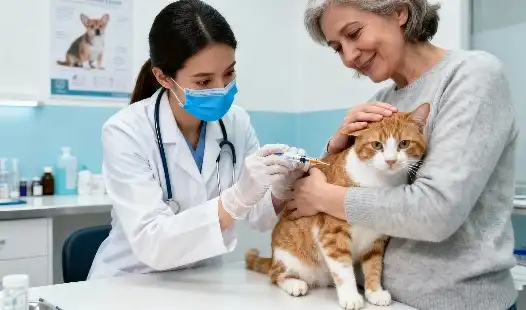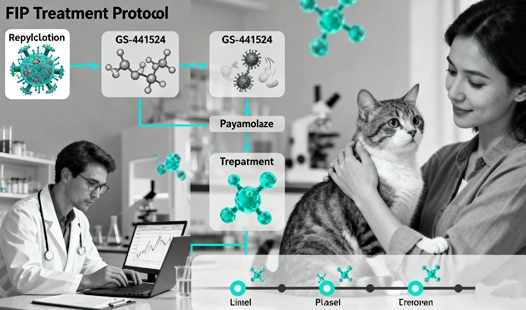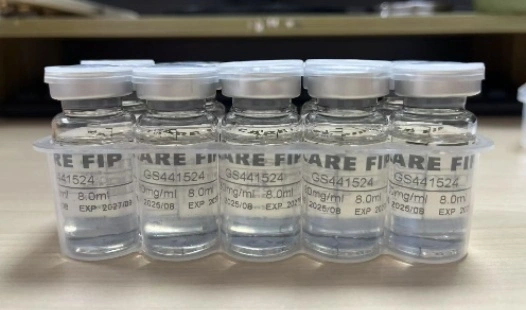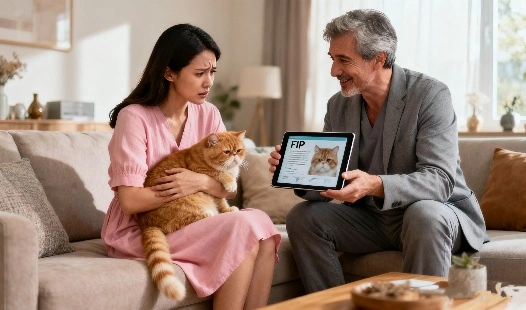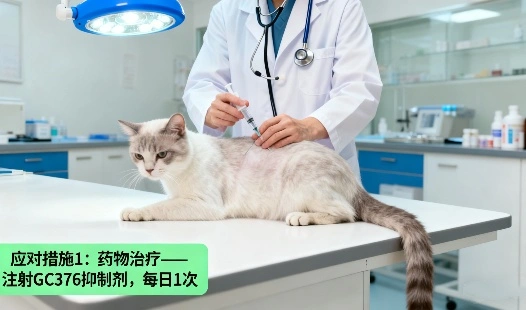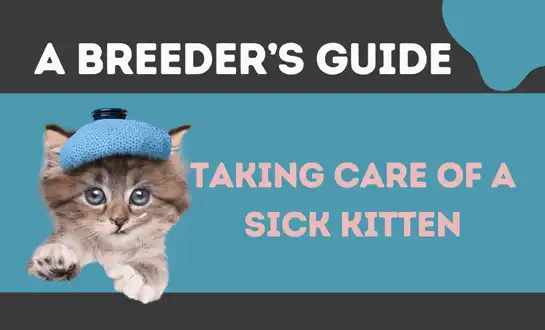
Initial improvement timeline with GS-441524
When starting GS-441524 treatment for FIP cats, many owners are eager to see signs of improvement. While individual responses can vary, there are some general timelines to keep in mind:
First 24-72 hours
In many cases, cats begin to show initial signs of improvement within the first 24 to 72 hours of starting GS-441524 treatment. These early signs may include:
- Increased appetite
- Improved energy levels
- Reduction in fever (if present)
- Decreased lethargy
First week
As the treatment progresses through the first week, more noticeable improvements may become apparent:
- Continued increase in appetite and weight gain
- Further reduction in fever
- Improved activity levels and playfulness
- Reduction in abdominal fluid (in wet FIP cases)
2-4 weeks
By the 2-4 week mark, many cats show significant clinical improvement:
- Substantial weight gain
- Normalization of blood work values
- Resolution of ocular and neurological symptoms (if present)
- Marked improvement in overall health and behavior
It's important to note that while these timelines represent typical responses, each cat's journey with GS 441524 treatment can be unique.

Factors affecting GS-441524 response time
Several factors can influence how quickly a cat responds to GS-441524 treatment:
Disease form and severity
The form of FIP (wet, dry, or neurological) and the severity of the disease at the start of treatment can significantly impact response time:
- Wet FIP: Often responds more quickly, with noticeable reduction in effusion within days to weeks
- Dry FIP: May take longer to show improvement, particularly if there's extensive organ involvement
- Neurological FIP: Can be more challenging and may require higher doses or longer treatment duration
Age of the cat
Younger cats often respond more rapidly to GS 441524 treatment compared to older cats. This may be due to their more robust immune systems and ability to recover more quickly.
Timing of treatment initiation
Early diagnosis and prompt initiation of treatment can lead to faster response times. Cats that start treatment in the early stages of FIP often show quicker improvement compared to those with advanced disease.
Dosage and administration
Proper dosing is crucial for effective treatment. Underdosing can lead to slower response times or treatment failure. It's essential to follow veterinary guidance on dosage and administration carefully.

When to expect significant clinical improvement?
While initial improvements may be seen within days, significant clinical improvement often occurs over a longer period:
Blood work normalization
Many cats show normalization of key blood values within 8-10 weeks of starting treatment. This includes:
- Hematocrit
- Total protein levels
- Albumin and globulin levels
- Absolute lymphocyte counts
Resolution of clinical signs
Complete resolution of clinical signs may take several weeks to months, depending on the initial severity of the disease. Most cats show substantial improvement by the 8-12 week mark of treatment.
Long-term outlook
The standard treatment duration for FIP treatment with GS-441524 is typically 12 weeks. However, some cats may require longer treatment periods, especially those with neurological involvement or those who experience relapses.
It's crucial to complete the full course of treatment as prescribed, even if the cat appears to have recovered earlier. Premature discontinuation of treatment can lead to relapses.
GS-441524 has shown remarkable promise in treating FIP, a disease once considered invariably fatal. While the timeline for improvement can vary, many cats show initial signs of recovery within days to weeks of starting treatment. Significant clinical improvement is often observed within 8-12 weeks, with some cats requiring longer treatment periods.
It's important for cat owners to work closely with their veterinarians throughout the treatment process, carefully monitoring their cat's progress and adjusting treatment as necessary. With proper administration of GS-441524 and supportive care, many cats with FIP now have a chance at recovery and a healthy life.
1. Can GS-441524 cure all forms of FIP?
GS-441524 has shown effectiveness against various forms of FIP, including wet, dry, and neurological forms. However, the success rate and treatment duration may vary depending on the specific form and severity of the disease.
2. Are there any side effects of GS-441524 treatment?
While GS-441524 is generally well-tolerated, some cats may experience mild side effects such as injection site reactions or gastrointestinal upset. Serious side effects are rare but should be reported to a veterinarian immediately.
3. How long does a cat need to be on GS-441524 treatment?
The standard treatment duration is typically 12 weeks. However, some cats may require longer treatment periods, especially those with neurological FIP or those who experience relapses. The exact duration should be determined by a veterinarian based on the cat's response to treatment.
Discover BLOOM TECH's Premium GS-441524 for Optimal FIP Treatment
The significance of using premium GS-441524 in FIP treatment is something we at BLOOM TECH well grasp. Produced in accordance with stringent GMP guidelines, our pharmaceutical-grade GS-441524 guarantees unparalleled effectiveness and purity. Veterinarians and researchers may rely on our GS-441524 as a dependable source to complement their FIP treatment procedures because of our significant knowledge in organic synthesis and dedication to quality. In your efforts to save the lives of cats, do not skimp on quality. Contact our expert team at Sales@bloomtechz.com to learn more about our premium GS-441524 and how we can support your FIP treatment needs as a trusted GS-441524 supplier.
1. Pedersen, N.C., et al. (2019). Efficacy and safety of the nucleoside analog GS-441524 for treatment of cats with naturally occurring feline infectious peritonitis. Journal of Feline Medicine and Surgery, 21(4), 271-281.
2. Addie, D.D., et al. (2020). Feline infectious peritonitis. ABCD guidelines on prevention and management. Journal of Feline Medicine and Surgery, 22(11), 1047-1068.
3. Murphy, B.G., et al. (2020). The nucleoside analog GS-441524 strongly inhibits feline infectious peritonitis (FIP) virus in tissue culture and experimental cat infection studies. Veterinary Microbiology, 219, 226-233.
4. Dickinson, P.J., et al. (2020). Antiviral treatment using the adenosine nucleoside analogue GS-441524 in cats with clinically diagnosed neurological feline infectious peritonitis. Journal of Veterinary Internal Medicine, 34(4), 1587-1593.









